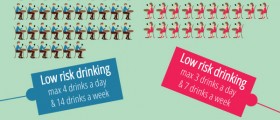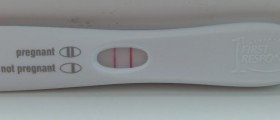
1. See your doctor before you start trying
Most people don't do this in fact, most people get pregnant without even trying. But, if you are planning to actively try for a baby, having a medical checkup first is a good idea. Women should get a general gynecological examination, undergo STD testing and have blood tests to see if they have any vitamin or mineral deficiencies.
2. Take folic acid
Folic acid is the only vitamin that has been proven to play a role in preventing birth defects. It also boosts fertility in both men and women. It is best to start taking folic acid about three weeks before you plan on ditching the birth control. Ask your partner to join you!
3. Have sex
While that sounds simple enough, it really isn't. Many articles about trying to conceive will tell you to have as much sex as possible, but there is plenty of evidence that suggests too much sex actually decreases a man's sperm count, which may actually harm your chances of getting pregnant. Scientists say that it is best to do the deed around two to three times a week. But it's also important that sex doesn't turn into a chore.
4. Find out when you ovulate
Knowing when that short fertile window will open is one of the most important things any woman can do to boost her chances of conceiving. There are many ways of accomplishing that. For a general idea, using an ovulation calendar is great. For more precise information, I recommend fertility charting, or ovulation tests.
5. Post-coital boredom
Have you heard about sticking a pillow under your bottom and reading a newspaper after sex? This, allegedly, helps you to get pregnant because sperm stays in. There's no actual evidence that this does the trick, but you could try. If you don't feel like lying around, you could try using a menstrual cup (like the Diva Cup) to keep those swimmers in, instead.
















Your thoughts on this
Loading...